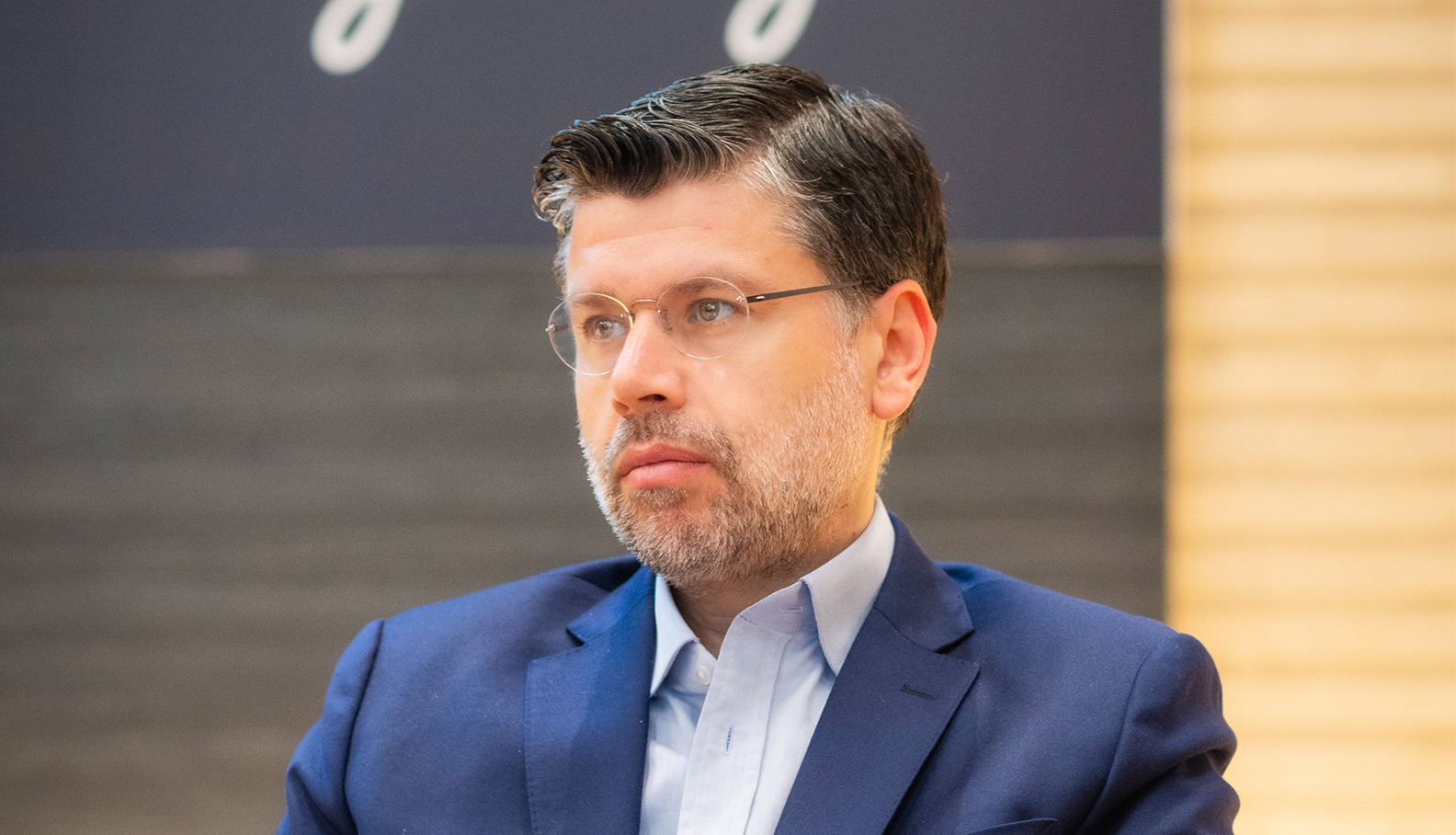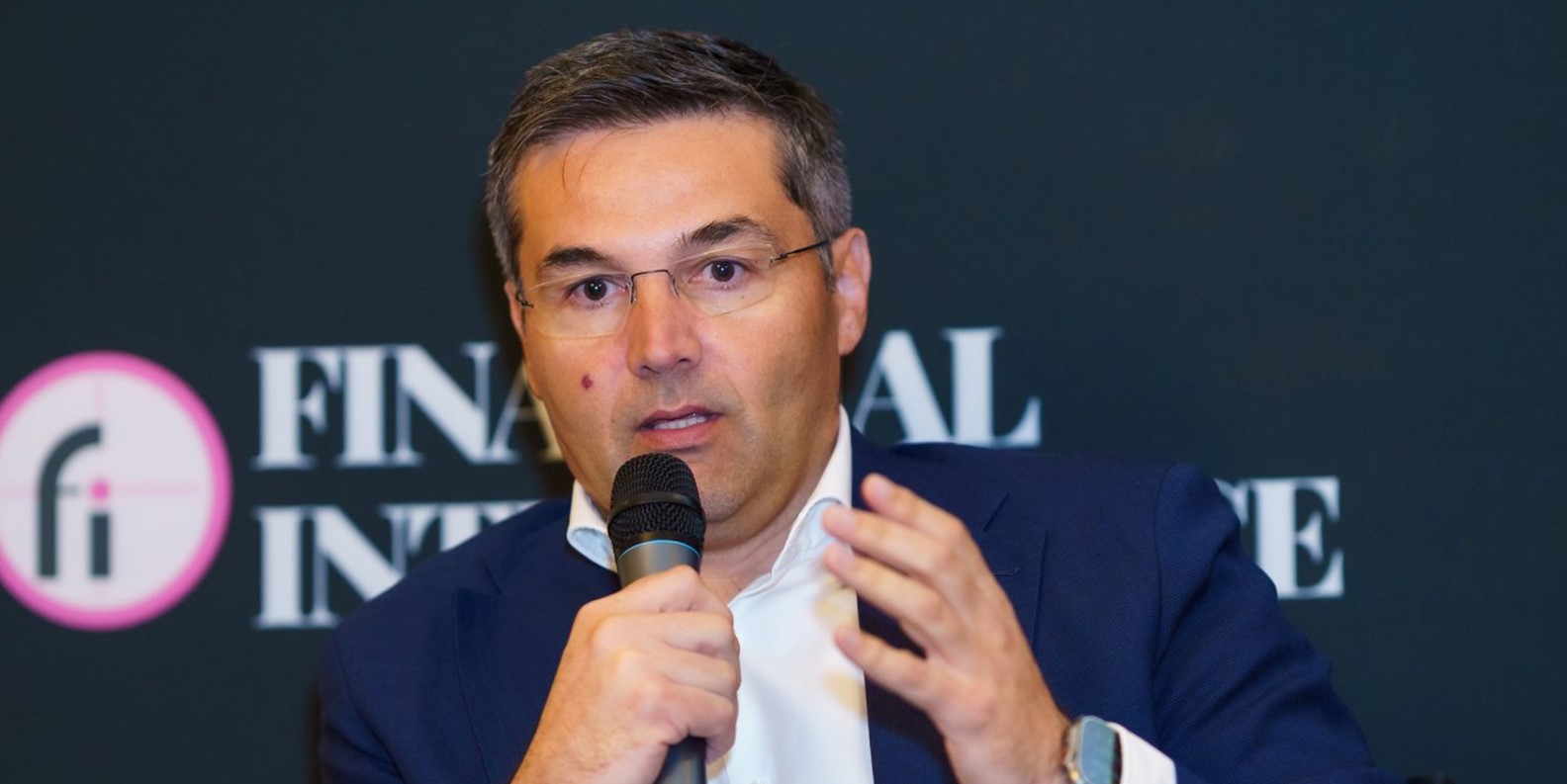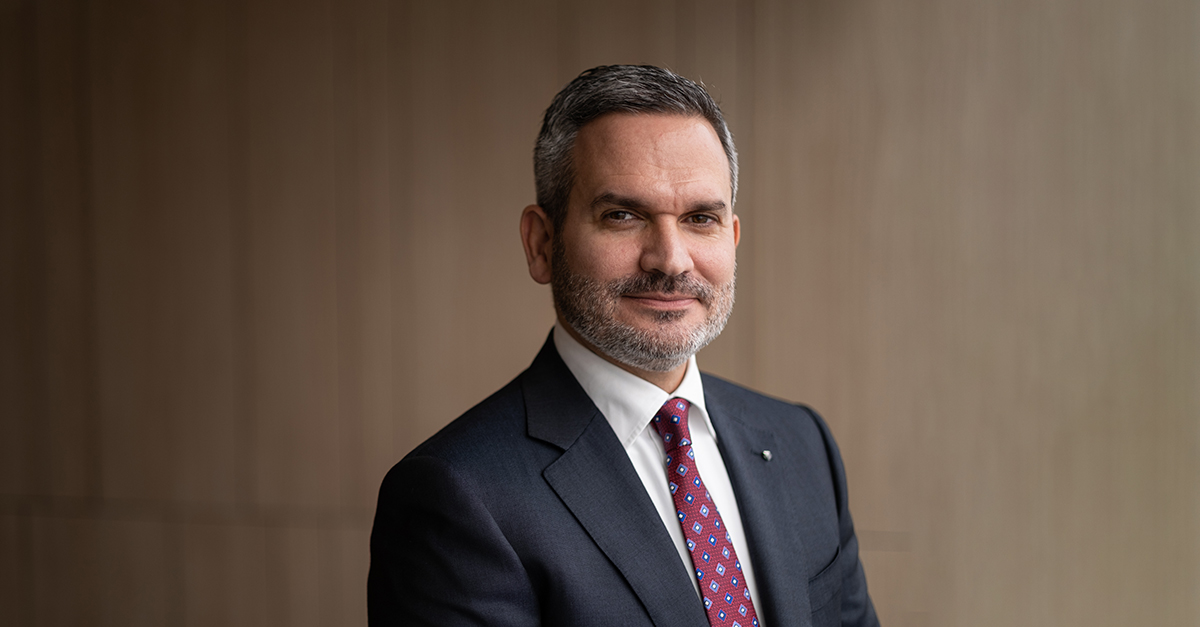Ömer Tetik: "Romania can become an interesting place to invest"
01 March 2023 Reading time 9:00 minutes

23 for 2023, an editorial project by Forbes Romania, is a series of articles in which 23 leaders analyse the economic context for the current year.
BT Voice: Ömer Tetik, General Manager, Banca Transilvania. Below, the interview with Forbes Romania magazine.
...
Ömer Tetik, CEO of Banca Transilvania, led Banca Transilvania to the top in his first decade in office and now, in the most difficult economic context in recent history, he has to find the best strategy for the next period.
The discussion with the most powerful banking executive took place at Stup, a €3 million project of Banca Transilvania, dedicated to supporting entrepreneurial businesses, located in the south-central area of the capital, right next to Tineretului Park, the largest green space in the city. And, just like in a beehive, hundreds of people were swarming around the 2,500 square metres on two levels.
One week everyone is talking about the good, then "bad news" comes out and people change their perspective. That's why I say we have to go like penguins, taking small but sure steps, says Ömer Tetik, just out of an event, but not one of the dozens of such projects organised for small entrepreneurs registered in the Stup community, but one dedicated to BT teams themselves.
File 23 for 2023. Where is business and society heading in Romania?
Our meeting coincided with an annual major test of the bank's IT systems, which passed with flying colours. "Basically, you're testing whether you can shut down all the systems and go to plan B. So far so good, the system works. Such an exercise is necessary because you can't have a continuity plan if your systems don't work, and on top of that inflation comes, war starts and so on... We are the generation that lived or heard from our parents about difficulties, but our children or half of my colleagues have seen throughout their lives only growth, only improvement," says Ömer Tetik, who recalls his teenage years in Turkey with drastic limitations in terms of electricity or TV availability, a very familiar memory for Romanians over 40.
The problem is that politicians in Europe are the same way. I mean, they haven't lived through such times either (...) I had a discussion earlier with Virgil Stănescu (former performance athlete, considered one of the best Romanian basketball players - editor's note) and he said that difficult situations must be part of an athlete's training because he must have prepared game plans for any situation. I think the same should be true in business, in politics and in life in general," adds the man who has been managing Banca Transilvania for almost ten years.
Ömer Tetik was recruited by Horia Ciorcilă, Chairman of the Board of Directors of BT and one of the founders of Banca Transilvania, at a time when the financial institution was in third place on the local market, with assets of about 30 billion lei and a market value of almost 3 billion lei. They worked and still work in perfect tandem. Banca Transilvania has grown rapidly, organically and through large-scale acquisitions, becoming the leader of the local banking market, with assets over 140 billion lei, according to the most recent reports, and a market capitalization of over 14 billion lei at the time of writing.
In addition, Banca Transilvania is one of Romania's main financiers (as a state) and holds a portfolio of government securities worth 40 billion lei, the value of which has depreciated rapidly in recent times, as yields on government securities have also risen rapidly amid explosive inflation.
Banks are now paying over 8% interest on deposits while receiving 2%-3% on government securities purchased several years ago. This is both a real cost and an opportunity cost - a cost that impacts both the banks' balance sheets and the real economy because many billions are extracted from the banks' real financing possibilities that could have gone to finance companies and the economy.
Both BT and all banks in general have a large exposure to the state - that's why we insist that the state is careful about how public money is spent. We pay attention to the efficiency and impact of spending.
This year should be one of the most important in the banker's career, also in terms of the most important bond issue ever announced by a Romanian company.
We announced last year that we were going to do a bond issue in the context of the capital requirements that exist in the market. We are doing this precisely because we want to have the strength to finance the economy and Romanians, and for that we need a strong and diversified capital base. But we also have a good capitalization and that is why we have the comfort of deciding the timing with which to exit the market and we will exit when the yield and the financing conditions are most suitable for us.
Last autumn, the shareholders of Banca Transilvania approved a general framework for the issuance of bonds worth up to EUR 1 billion, through separate issues, over a maximum period of ten years, which will support the fulfilment of the MREL (Minimum Requirement for Own Funds and Eligible Liabilities) requirements and the financing of the economy and the population. In practice, European standards require banks to ensure an optimal level of MREL-eligible funds, not including customer deposits, guaranteed by the Bank Deposit Guarantee Fund at all times. The instruments will not be guaranteed and will not be convertible at the initiative of investors.
This is both an advantage and a disadvantage. It is the first transaction for us and the first transaction of this size in Romania. It will also be listed abroad. There is a lot of interest, investment banks and funds have started to call us and want to participate. That's ok, but on the other hand, being the first, it will be a process with a lot more questions and market sounding and road show efforts, says Ömer Tetik, without giving further details.
In its history, Banca Transilvania has capitalized itself, among other things, by attracting direct placements from international institutions such as the EBRD or by capitalizing profits. In the last decade alone, Banca Transilvania has capitalised profits of over RON 5 billion to sustain the accelerated growth that has made it the leader in the banking market. This means that BT has reinvested its profits, precisely in order to support Romania's development.
But what is the biggest risk that could affect the economy and, with it, Banca Transilvania's evolution?
Maybe the big bosses in investment banks or economists are not used to such high inflation, but we have seen it before. For us, the biggest worry now is how the government will behave. But I don't necessarily mean infrastructure investment. I'm also thinking about the fact that we have - as a country - quite high expenditure and we have to think that this expenditure should be efficient and a significant percentage of it should go to investment, adds Ömer Tetik, who raises questions about the sustainability of the debt level if it is not used properly.
Secondly, the banker draws attention to how the main economic agents, from banks and ANAF to large companies, will deal with debts and claims.
If any of these actors start asking for their money back accelerated or are late in giving the money away, then we're going to get into the same spiral as in 2009. It's going to increase insolvencies, people are going to start not paying. If you and I have credit, but have trouble paying, and I tell you I'm struggling to pay, then you'll probably struggle to pay too. But if I tell you that I don't want to pay, then you have an argument for defaulting, says the banker, who also mentions the demographic situation in Romania and inflation on the list of risks.
We in Romania are used to inflation to a certain extent. However, I think it is better to have some stability than necessarily a very low inflation, which discourages investments and transactions - it is better to have 10% inflation and you can adapt, make medium-term plans every year, but you know it is 10%, than this increase from 2%-3% to 16% in the short term, and then drop to 10%, concludes the head of Banca Transilvania, who realistically believes that the problems at the border can also be an opportunity for Romania. Romania has energy resources, agriculture, etc. and can become an interesting place for investment, but also a hub for the reconstruction of Ukraine.

Press contact
Other articles
A little more
I just sent an email to you. Confirm your subscription by clicking on the link in the email.













